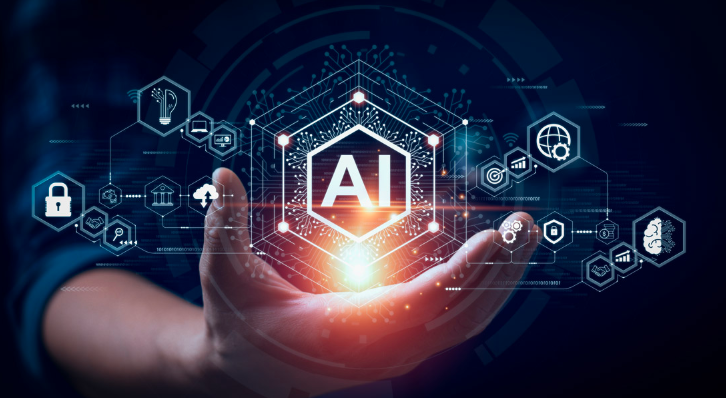
Can AI Replace Peer Review? Understanding the Boundaries
What Is the Peer Review Process?
The peer review process is a cornerstone of academic publishing. It ensures that research meets rigorous standards before being accepted into scholarly journals. Typically, after a manuscript is submitted, it is evaluated by independent experts in the same field. These reviewers assess the paper’s originality, methodology, clarity, and relevance.
This process not only validates research quality but also provides authors with constructive feedback to improve their work. However, peer review can be time-consuming, and subjectivity or bias occasionally creeps in, raising questions about consistency and fairness. As AI continues to advance, some wonder: Can AI assist—or even replace—human peer reviewers?
AI’s Role in Initial Feedback and Error Detection
AI has already proven useful in providing initial editorial support. Before reaching a human reviewer, manuscripts can be screened using algorithms that flag grammatical issues, citation errors, or formatting inconsistencies.
For example, tools like ResearchPal offer features such as grammar refinement, readability analysis, and even a Reference Generator to check the accuracy and consistency of citations. These capabilities allow authors to submit cleaner, more polished drafts—ultimately saving time for both reviewers and editors.
AI can also detect potential issues like plagiarism, data inconsistencies, or non-standard language usage. While it doesn’t evaluate the intellectual merit of the research itself, it plays a valuable pre-review role.
Human vs. Machine Judgment: What AI Can’t Do
Despite AI’s strengths in automation and analysis, it falls short in areas that require critical thinking, subject-specific judgment, and ethical considerations.
Peer reviewers don’t just assess grammar—they evaluate whether a hypothesis is well-founded, whether methods are appropriate, and if the conclusions are logically supported by the evidence. These assessments require deep domain expertise, something AI currently lacks.
Read also: Boost Your Business with Leaflet Printing and Personalised Booklets in Telford
Moreover, reviewers often provide nuanced feedback based on years of experience, including suggestions for theoretical framing or referencing emerging literature—insights that no machine can fully replicate.
AI in Double-Blind Reviews and Scoring Rubrics
AI can support double-blind reviews by helping maintain anonymity, ensuring documents are scrubbed of identifying metadata. Additionally, AI can assist editors by generating objective scoring rubrics, such as rating manuscripts on language clarity, structure, or citation formatting based on preset benchmarks.
Such support tools can help standardize parts of the review process and reduce unconscious bias in certain metrics. However, scoring complex arguments or evaluating interdisciplinary innovation remains out of AI’s reach.
Enhancing Reviewer Productivity
While AI cannot replace reviewers, it can enhance their productivity. Automated tools can summarize long documents, flag inconsistencies, and even suggest missing references. This speeds up the review process, helping reviewers focus on the core contributions of the paper rather than getting bogged down in minor technicalities.
Platforms like ResearchPal integrate reference management, grammar checks, and editorial suggestions—all in one place. This allows both authors and reviewers to collaborate more efficiently and maintain high standards of academic writing.
Final Verdict: Complementary, Not a Replacement
So, can AI replace peer review? The short answer is no—but it can complement it.
AI provides valuable tools that improve the quality of submissions and assist reviewers in identifying surface-level errors. It increases efficiency, ensures consistency, and helps uphold ethical standards in referencing through tools like the Reference Generator.
However, the essence of peer review lies in human expertise, judgment, and discourse—elements that AI has not yet mastered. The ideal approach is one of partnership, where AI supports but does not substitute the critical eye of a seasoned reviewer.
FAQs: AI in Peer Review
Q1: Can AI detect plagiarism and citation issues?
Yes, many AI tools can identify unoriginal content and help ensure citation accuracy. ResearchPal, for instance, includes a Reference Generator that checks for citation consistency.
Q2: Are AI tools used in journal editorial workflows?
Yes, many publishers now use AI for initial screening, grammar checks, and formatting reviews before assigning manuscripts to human reviewers.
Q3: Is AI reliable for academic evaluation?
AI is reliable for technical aspects like grammar and structure but not for assessing originality, relevance, or academic impact. These require human evaluation.
Q4: How can AI support peer reviewers?
AI can save time by summarizing long texts, detecting citation errors, and maintaining formatting standards, allowing reviewers to focus on content quality.
Q5: Will AI ever fully replace human reviewers?
Unlikely. While AI will continue to evolve, academic peer review depends heavily on human insight, debate, and critical reasoning—skills that AI does not yet possess.




